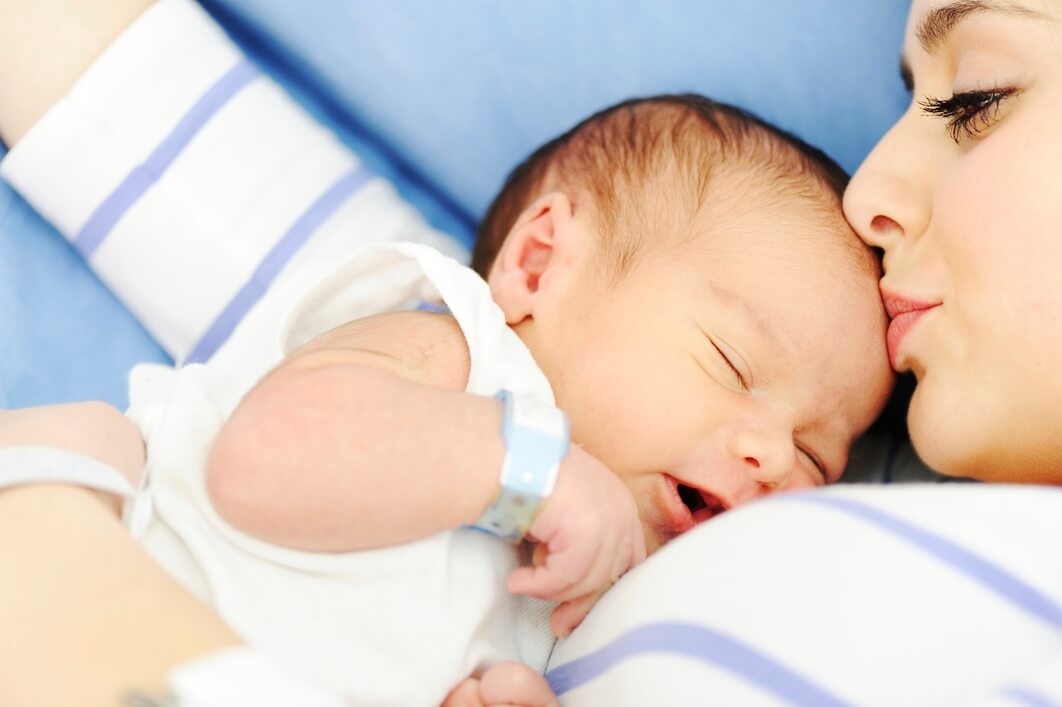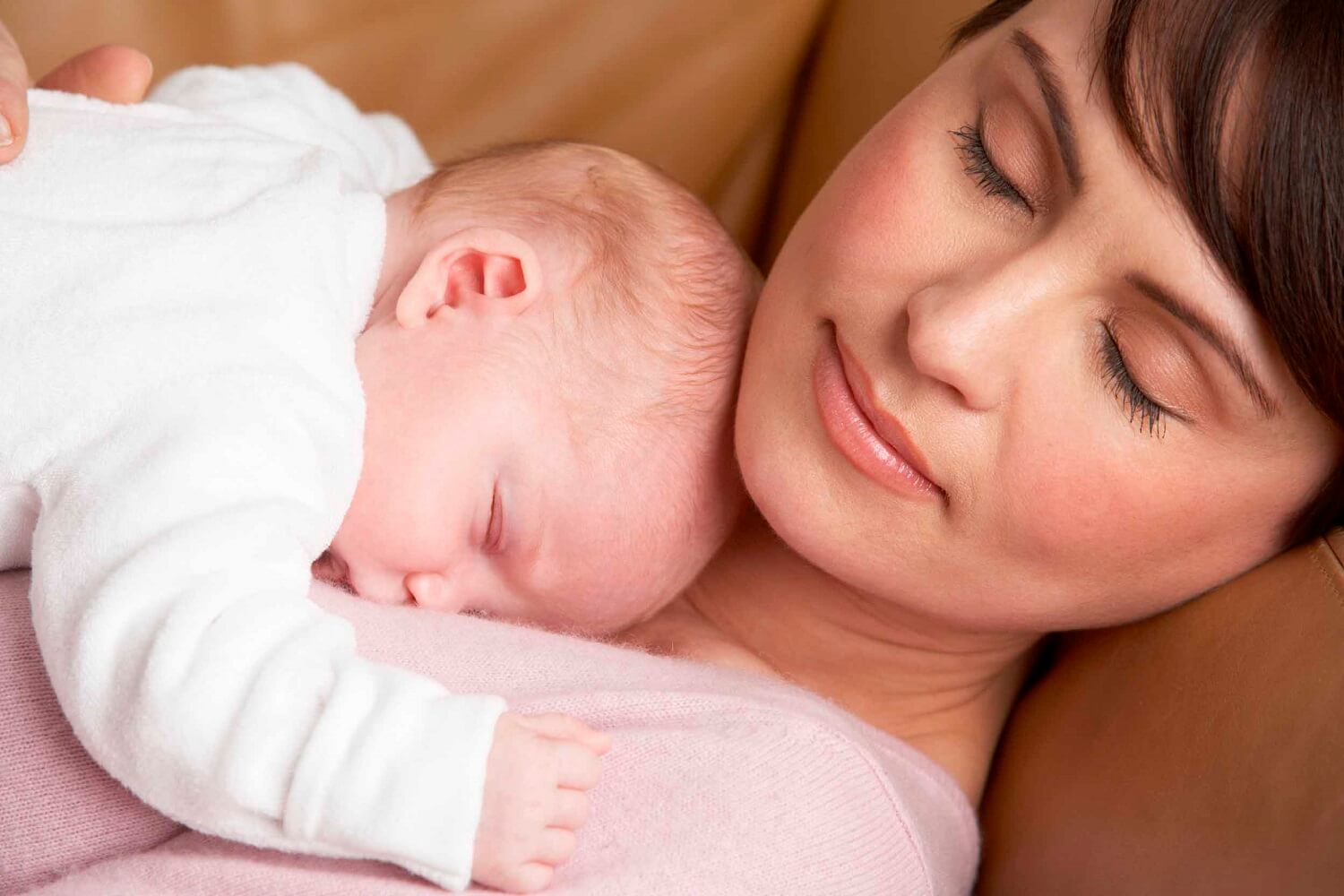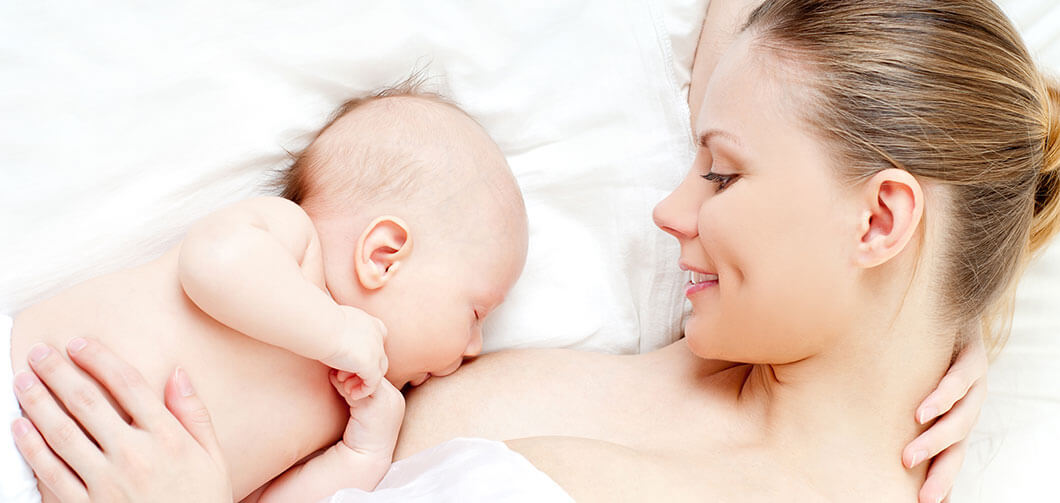8 Types Of Postpartum Care That Every Mom Needs

After giving birth, a woman’s body needs around six weeks to recover from the changes it underwent during pregnancy. During this time, it is vital to get all the rest and postpartum care you need.
Whatever people may say, the postpartum period is a time of change and readjustment that can go on for weeks or even months.
At around the sixth week after giving birth, several physical and emotional changes occur in a mother’s body. These can leave us feeling exhausted and a little resentful.
Your body is working to gradually reverse the changes that happened during pregnancy and return to its previous form.
It is important to know the basics of postpartum care so you can recover at home, at your own pace and in tune with your body’s needs and limitations.
The most important types of postpartum care

Hygiene for lochia
Among the things you will experience after giving birth is the appearance of lochia. This is vaginal discharge made up of tissue and blood from the uterus. Your body should start to expel it soon after you get home.
This is a natural and healthy process, so hygiene should be your only concern. Experts recommend washing your intimate area three to five times a day, with water and a neutral soap. Afterwards, dry off with a soft, clean towel.
Breastfeeding and postpartum contractions
After you have your baby, you may experience acute abdominal cramps. These are contractions, and they occur as your uterus shrinks back to its normal size.
These cramps can often coincide with breastfeeding, as when you nurse your baby, you release hormones which cause the uterus to contract.
Your cramps may be painful, particularly if this is not your first baby: postpartum cramps tend to be more intense in women who have given birth before.
To help heal your blood vessels, you should begin breastfeeding as soon as possible. Stimulating your mammary glands helps these contractions to do their work.
Rest and sleep to regain energy

Getting enough rest is a vital part of postpartum care, but the first few nights with your baby will be exhausting. You will still be getting used to breastfeeding and learning your child’s sleep patterns.
The best way around this is to follow your baby’s lead and sleep when they do. Getting as much rest as possible in the first few days after giving birth will help you to feel better.
It is completely natural if the only thing you want to do is eat, sleep and care for your baby. After all, this is a time for rest, recovery and care.
You have been in my belly for nine months, but you will be in my heart for the rest of my life.
-Anonymous-
Keep your legs raised to reduce swelling
After giving birth, you will experience swelling in your legs and feet, which may last some time. To reduce swelling, the best thing is to keep your feet up as much as possible, particularly when you are lying down.
Gentle walks to reduce constipation
Try to go to the bathroom as soon as you feel the need. If you don’t, your stool may accumulate and become hard.
To avoid constipation and make using the bathroom easier, doctors recommend taking slow, gentle walks. This will stimulate your intestinal transit and help get your body back to normal.
For the same reason, you should also make sure to drink plenty of water and eat fresh fruit and vegetables, which are rich in fiber.
Taking care of stitches or an episiotomy
Stitches are used in case of vaginal tearing or an episiotomy, which is a cut made in the perineum to avoid tearing during birth.
Ask how to best take care of your stitches before you leave the hospital, so you can follow the instructions at home.
In any case, taking care of your stitches is easy and painless, and can help to prevent discomfort and infection.
Take a shower every day with lukewarm water and a neutral soap. This will help keep your scar clean and dry. Pat the area dry gently, using a soft towel.
Another tip is to lie down for ten minutes out of each hour, so that blood does not build up in the area.
What to do when your milk comes in

Your milk will normally come in by the third or fourth day after you give birth. You might feel a slight fever, and your breasts will be so full that you will feel like they are about to burst. They will be hot, swollen and painful.
To relieve this sensation, try putting a cool, damp cloth on your breasts when they hurt. Of course, the best remedy is to ensure (as much as possible) that your baby is feeding properly. You can also express some of the milk using a breast pump.
Your emotions after giving birth
Postpartum care goes beyond physical aspects, however. Having a baby gives rise to strong emotions, and can often generate mixed feelings: happiness tinged with fear and doubt and even sadness.
You may feel more sensitive, or cry suddenly. At times you might feel lonely, or suffer from low self esteem.
All of these emotions are normal and understandable. However, if they turn into something more intense, such as anxiety, terror, sadness, insomnia or lethargy, you should ask for help.
Talk to your doctor, because these feelings are signs of postpartum depression.
After giving birth, a woman’s body needs around six weeks to recover from the changes it underwent during pregnancy. During this time, it is vital to get all the rest and postpartum care you need.
Whatever people may say, the postpartum period is a time of change and readjustment that can go on for weeks or even months.
At around the sixth week after giving birth, several physical and emotional changes occur in a mother’s body. These can leave us feeling exhausted and a little resentful.
Your body is working to gradually reverse the changes that happened during pregnancy and return to its previous form.
It is important to know the basics of postpartum care so you can recover at home, at your own pace and in tune with your body’s needs and limitations.
The most important types of postpartum care

Hygiene for lochia
Among the things you will experience after giving birth is the appearance of lochia. This is vaginal discharge made up of tissue and blood from the uterus. Your body should start to expel it soon after you get home.
This is a natural and healthy process, so hygiene should be your only concern. Experts recommend washing your intimate area three to five times a day, with water and a neutral soap. Afterwards, dry off with a soft, clean towel.
Breastfeeding and postpartum contractions
After you have your baby, you may experience acute abdominal cramps. These are contractions, and they occur as your uterus shrinks back to its normal size.
These cramps can often coincide with breastfeeding, as when you nurse your baby, you release hormones which cause the uterus to contract.
Your cramps may be painful, particularly if this is not your first baby: postpartum cramps tend to be more intense in women who have given birth before.
To help heal your blood vessels, you should begin breastfeeding as soon as possible. Stimulating your mammary glands helps these contractions to do their work.
Rest and sleep to regain energy

Getting enough rest is a vital part of postpartum care, but the first few nights with your baby will be exhausting. You will still be getting used to breastfeeding and learning your child’s sleep patterns.
The best way around this is to follow your baby’s lead and sleep when they do. Getting as much rest as possible in the first few days after giving birth will help you to feel better.
It is completely natural if the only thing you want to do is eat, sleep and care for your baby. After all, this is a time for rest, recovery and care.
You have been in my belly for nine months, but you will be in my heart for the rest of my life.
-Anonymous-
Keep your legs raised to reduce swelling
After giving birth, you will experience swelling in your legs and feet, which may last some time. To reduce swelling, the best thing is to keep your feet up as much as possible, particularly when you are lying down.
Gentle walks to reduce constipation
Try to go to the bathroom as soon as you feel the need. If you don’t, your stool may accumulate and become hard.
To avoid constipation and make using the bathroom easier, doctors recommend taking slow, gentle walks. This will stimulate your intestinal transit and help get your body back to normal.
For the same reason, you should also make sure to drink plenty of water and eat fresh fruit and vegetables, which are rich in fiber.
Taking care of stitches or an episiotomy
Stitches are used in case of vaginal tearing or an episiotomy, which is a cut made in the perineum to avoid tearing during birth.
Ask how to best take care of your stitches before you leave the hospital, so you can follow the instructions at home.
In any case, taking care of your stitches is easy and painless, and can help to prevent discomfort and infection.
Take a shower every day with lukewarm water and a neutral soap. This will help keep your scar clean and dry. Pat the area dry gently, using a soft towel.
Another tip is to lie down for ten minutes out of each hour, so that blood does not build up in the area.
What to do when your milk comes in

Your milk will normally come in by the third or fourth day after you give birth. You might feel a slight fever, and your breasts will be so full that you will feel like they are about to burst. They will be hot, swollen and painful.
To relieve this sensation, try putting a cool, damp cloth on your breasts when they hurt. Of course, the best remedy is to ensure (as much as possible) that your baby is feeding properly. You can also express some of the milk using a breast pump.
Your emotions after giving birth
Postpartum care goes beyond physical aspects, however. Having a baby gives rise to strong emotions, and can often generate mixed feelings: happiness tinged with fear and doubt and even sadness.
You may feel more sensitive, or cry suddenly. At times you might feel lonely, or suffer from low self esteem.
All of these emotions are normal and understandable. However, if they turn into something more intense, such as anxiety, terror, sadness, insomnia or lethargy, you should ask for help.
Talk to your doctor, because these feelings are signs of postpartum depression.
This text is provided for informational purposes only and does not replace consultation with a professional. If in doubt, consult your specialist.








